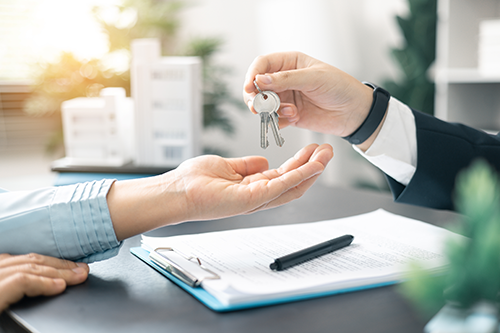Buying a Rental? Here’s a Quick Checklist to Help You

Buying a rental property is a very different proposition to purchasing a home that you live in and call your own. After all, owning a rental is much like running a business, with incomings, outgoings and a bottom line that is designed to meet your financial needs.
With that in mind, here’s a quick checklist for buying a rental…
Location
As the old saying goes, real estate is all about ‘location, location’ and that’s very much the case when it comes to investing in a rental property. Ideally, you’re looking for a location where there’s potential capital growth and also stability. For example, is the area likely to increase in value over the coming years? But also is it a region that is safe, underpinned by stable employment, and desirable?
Position
The position of the property affects its livability and takes into account things like nearby amenities (such as shops, medical facilities, schools and parks), available public transport, and road corridors. In other words, is it in a position that is convenient and appealing?
Condition
The overall condition of a property is important when you’re buying any real estate, but particularly so when it comes to investing in a rental. How old is the home? Is there any existing damage or are there structural issues like rising damp and pests? What improvements need to be made? And also what type of structure is it (timber, brick cladding, block render etc.)?
Each of these factors are worth considering as they may impact how much upkeep will be required for the property over both the short and long-term.
And word to the wise here, if you’re buying an apartment as an investment property, it’s particularly important to take a good hard look at the condition of the overall property, and the finances of the body corporate.
Maintenance
And on that note, ideally a rental property will be low maintenance, meaning it’s easy to look after for both the rental occupier and the owner. Although repairs and maintenance will be required at any property from time to time, a low maintenance one is more durable and requires less upkeep in terms of both the building and its gardens.
Market
Buying an investment property isn’t just about purchasing a slice of real estate, it’s about business. That means you should consider who (the market) your product (property) is likely to appeal to. Is it families, professional couples, students, or downsizers? Now what’s the supply and demand like for similar properties in the area where you’re considering buying?
Costs
Before you go jumping in as a rental owner, it’s important to consider the costs involved. These include:
- Mortgage
- Property management fees
- Insurance
- Maintenance and repairs
- Council rates
- Body corporate fees
- And more…
Bottom line
When you buy an investment property it’s usually with a set of specific financial goals in mind, which might include:
- Building wealth through growth in the property’s capital value
- Ongoing income in the form of rent
- Tax breaks, such as negative gearing
It’s important to be crystal clear on exactly what you’re hoping to achieve from the outset and how that will impact you financially.
Source: Ben Doughton, D&J Property Co.
Phone: 03 5996 5993
www.djproperty.co/